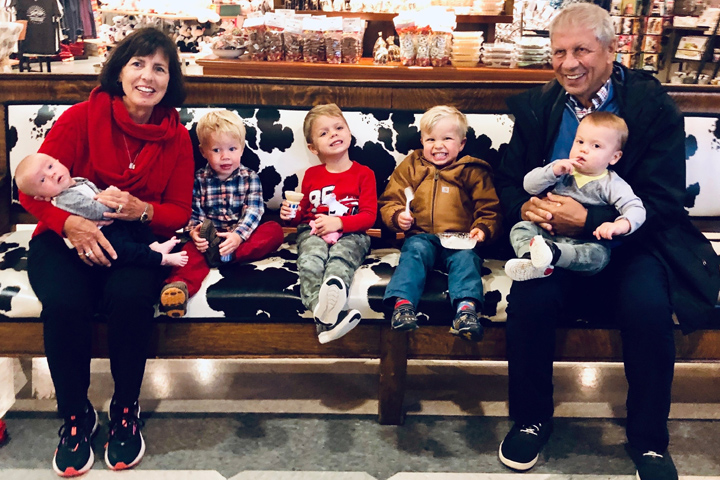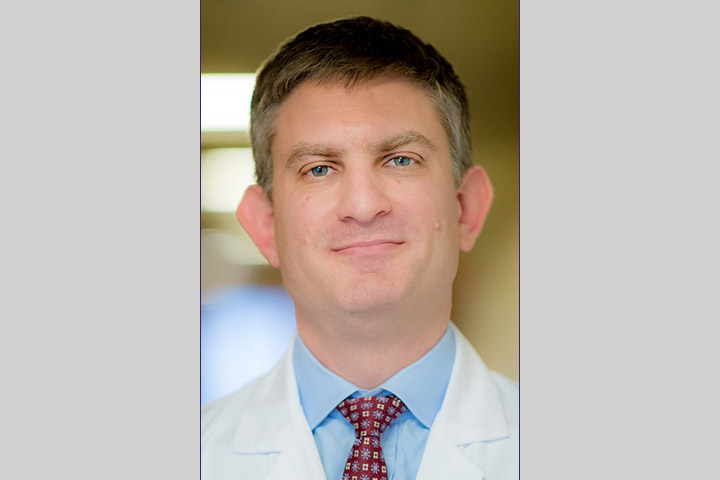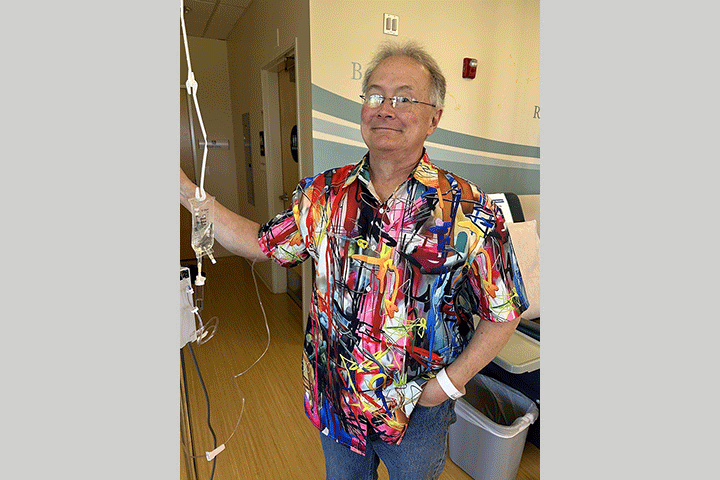Surviving Pancreatic Cancer Three Times

- Initially treated with a Whipple procedure
- Recurrence and the removal of the rest of my pancreas
- Another recurrence and chemotherapy
I was diagnosed with pancreatic cancer in 2011, when my eyeballs turned yellow.
In January my wife and I were at a Butler University basketball game, when she said I didn’t look right. I blamed the lighting in Hinkle Fieldhouse. But when other people agreed I went to the doctor. After having an ERCP in early February 2011, I was diagnosed with pancreatic cancer. I was given a 5 percent chance of living five years and was told to get my affairs in order.
A Whipple Procedure and More Surgery
I went to Dr. Keith Lillemoe, then at Indiana University Health Medical Center, Indianapolis (now at Mass General in Boston). I had a Whipple procedure to remove the head of my pancreas, followed by six months of chemotherapy with Gemzar.
I recovered and was doing well when 15 months later, in April of 2012, I had a recurrence. Dr. Lillemoe had moved to Boston by then, so he referred me to Dr. Michael House, a surgeon at Indiana University Health. Dr. House removed the rest of my pancreas. Because the margins were clear, I did not have chemotherapy after. As a result of this operation I became a type I diabetic. I now have an insulin pump that I keep in my pocket. I call it my “outside pancreas.”
Everything was fine until May 2013, when Dr. Patrick Loehrer, my oncologist at Indiana University Health, detected cancer cells in the scar tissue where my pancreas had been. I was given chemotherapy with Abraxane and Gemzar for four months, to get rid of the cancer. I am unique—I have had pancreatic cancer three times, the third time without even having a pancreas.
Overall my recovery from surgery and chemo was relatively easy. I give credit to doing a lot of exercise.
Helping Others
Since then I have been cancer-free. I am now 70 years old and have scans once a year. I am active, playing golf, planning trips, and spending time with my family, including my grandchildren. My support through all of this has been what I call the three Fs: my family, my faith, and my friends.
From my diagnosis on, I stayed focused on the future, and I believe that has helped me deal with the present. I volunteer for PanCAN and have been at PurpleStride Indianapolis since I was diagnosed. I am regularly contacted by caregivers or other patients and I help them as much as I can. Because I am a pancreatic cancer survivor, they see me as a symbol of hope.
Larry passed away 11 years after his pancreatic cancer diagnosis. He was an active volunteer with PanCAN, raising money for research into this disease. We offer our deepest condolences to his family.
Ask the Doctor

If you are in long-term treatment or have completed treatment, you may have concerns about what is next. Here are some questions to ask your doctor.





